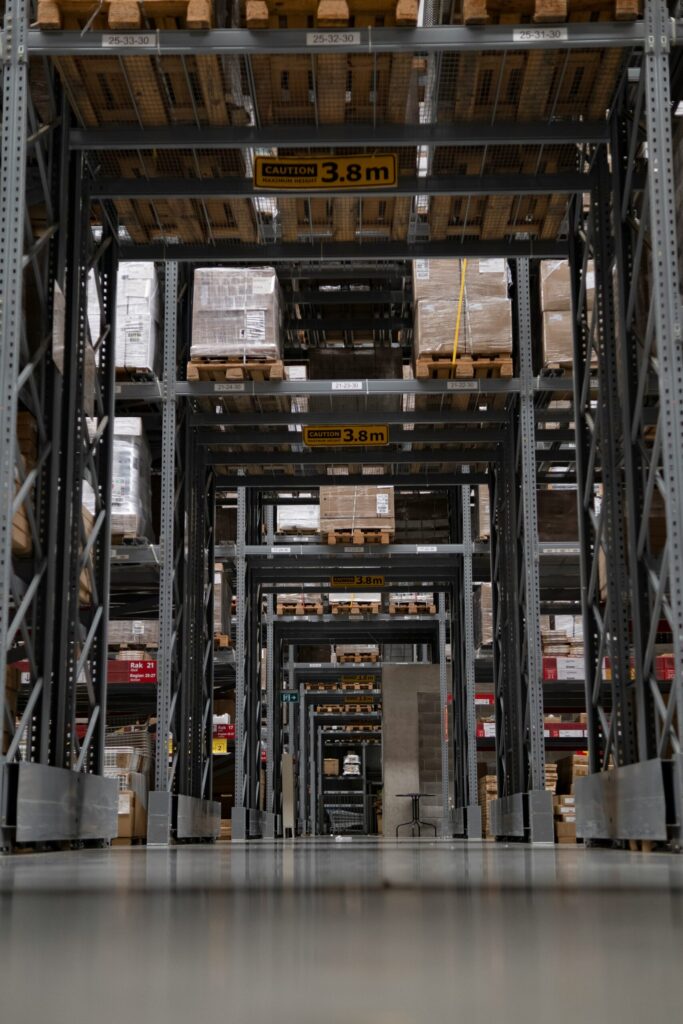DevOps engineer positions are everywhere right now, and the pay is solid. But before you start firing off applications, let’s be clear about what these jobs actually involve, because “DevOps” means different things at different companies.
At its core, DevOps engineering sits at the intersection of software development and IT operations. You’re building and maintaining the infrastructure that allows developers to deploy code quickly and reliably. You’re automating processes that used to require manual work. Additionally, you’re monitoring systems to catch problems before users notice them. You’re responding when things break—and in modern software systems, things break constantly.
The specific tools and responsibilities vary wildly. At one company, you might spend your days managing Kubernetes clusters and building CI/CD pipelines. At another, you’re troubleshooting AWS infrastructure and writing Terraform configurations. Also, you’re on-call responding to production incidents at 2 AM and then spending the next day figuring out how to prevent similar incidents.
The salary range reflects this variety—and the strong demand. DevOps engineers in the U.S. typically make between $100,000 and $150,000+, with senior roles and hot markets pushing significantly higher. Entry-level positions start around $80,000-$100,000. That’s good money, but it comes with expectations of technical depth, problem-solving ability, and willingness to deal with systems that operate 24/7.
Read Also: Daily Pay Jobs in the USA- How to Apply and Salaries
What DevOps Engineer Jobs Actually Are
 Let’s get specific about how you’d spend your days, because job descriptions full of buzzwords don’t tell you much.
Let’s get specific about how you’d spend your days, because job descriptions full of buzzwords don’t tell you much.
You build and maintain infrastructure.
This often means cloud infrastructure—AWS, Azure, or Google Cloud Platform. You’re creating the environments where applications run, configuring networks, managing databases, setting up load balancers, and ensuring everything is secure and scalable. Much of this happens through Infrastructure as Code using tools like Terraform or CloudFormation, meaning you’re writing configuration files that define infrastructure rather than clicking through web consoles manually.
You create and improve deployment pipelines.
Developers write code, but someone needs to get that code from their laptops into production, where users can access it. That’s often you. You’re building CI/CD (continuous integration/continuous deployment) pipelines using tools like Jenkins, GitLab CI, GitHub Actions, or CircleCI. These pipelines automatically test code, build applications, and deploy them to production—ideally without human intervention once they’re set up properly.
You monitor and troubleshoot systems.
Applications and infrastructure fail in creative ways. You’re setting up monitoring using tools like Prometheus, Grafana, Datadog, or New Relic to track what’s happening. You’re creating alerts that notify you (or the team) when things go wrong. And you’re investigating when alerts fire—digging through logs, checking metrics, tracing requests through distributed systems, and figuring out what broke and how to fix it.
You automate repetitive tasks.
A lot of DevOps work involves identifying manual processes and automating them. Database backups. Log rotation. Security patching. Scaling infrastructure up or down based on load. You’re writing scripts—usually in Python, Bash, or Go—that handle these tasks automatically and reliably.
You respond to incidents.
When production systems go down, someone needs to fix them fast. DevOps engineers are often on-call, meaning you carry a pager (digital nowadays, but the concept is the same) and respond when things break, regardless of whether it’s 3 PM or 3 AM, Tuesday or Saturday. The frequency and severity of incidents vary widely by company and how mature their systems are.
You collaborate with developers and other teams.
DevOps isn’t a solo activity. You’re working with software developers to understand their deployment needs, with security teams to implement safeguards, with product managers to understand priorities, and with other DevOps or SRE (Site Reliability Engineering) colleagues to share knowledge and split responsibilities.
Here’s what often doesn’t make it into job descriptions: you’re constantly learning because the technology landscape changes rapidly. The tools and practices that were standard three years ago are sometimes obsolete now. You’re debugging obscure problems with incomplete information. You’re dealing with the tension between moving fast (which developers want) and maintaining stability (which users and executives demand). And you’re often working under pressure when systems are down and revenue is being lost.
Read Also: Amazon Work-From-Home Jobs in the USA- Here’s the Real Deal
The Job Market—Demand vs. Reality
There’s strong demand for DevOps engineers. LinkedIn shows over 117,000 DevOps job postings. Indeed has thousands of remote positions. Specialized boards like DevopsJobs.io list hundreds of roles. Companies across industries—tech startups, enterprises, finance, healthcare, retail—all need people who can manage modern infrastructure and deployment.
But “strong demand” doesn’t mean getting hired is easy, and understanding the nuances helps you navigate the market better.
Experience requirements can be unrealistic.
Job postings often ask for 5+ years of experience with tools that have existed for 3 years. They want expertise in AWS, Azure, GCP, Kubernetes, Terraform, Docker, Jenkins, Python, Go, and six other technologies—basically expecting you to be an expert in everything. These wish lists are often written by recruiters or managers who don’t understand that nobody has deep expertise across that entire stack.
The reality? You don’t need to meet every requirement. If a posting lists 15 technologies and you’re solid with 7-8 of them, apply anyway. Many companies will train you on the rest. What matters more is your ability to learn, troubleshoot, and think systemically.
“Junior” or “entry-level” DevOps roles are rare.
Most positions expect 3-5+ years of experience. That creates a catch-22 for people trying to break into the field—you need DevOps experience to get DevOps jobs, but how do you get that initial experience?
Some paths: transition from system administration or software development roles where you’ve already touched infrastructure or deployment. Do DevOps-related work in a different title (system admin, operations engineer, platform engineer). Build projects on your own—deploy applications on AWS or Azure, create CI/CD pipelines for personal projects, contribute to open source infrastructure projects. Demonstrate you understand the concepts even without the job title.
Remote work is common but not universal.
DevOps is one of the more remote-friendly engineering fields because much of the work happens via terminal and doesn’t require physical presence. Many companies hire DevOps engineers fully remote. But some still want on-site or hybrid arrangements, especially larger enterprises or companies with security concerns about remote infrastructure access.
If remote work matters to you, filter aggressively. “Remote-friendly” can mean different things—some companies allow remote but expect you online during specific hours across US timezones. Others are flexible as long as work gets done. Some offer remote but pay based on your location’s cost of living rather than company location. Clarify these details early.
On-call expectations vary dramatically.
Some DevOps roles involve regular on-call rotations—maybe one week per month where you’re the primary responder for production incidents. Other roles have minimal or no on-call. Some companies pay extra for on-call time. Others consider it part of your base salary.
This matters enormously for quality of life. Being on-call means you can’t fully disconnect. You can’t have a few drinks on Friday night. You need to stay near internet access. If you get paged at 2 AM, you’re working at 2 AM. For some people, that trade-off is fine—especially if on-call is infrequent and well-compensated. For others, it’s a dealbreaker.
Ask explicitly about on-call expectations during interviews. How often? How many incidents typically occur? What’s the escalation process? How are people compensated for on-call time?
Company size and maturity matter.
DevOps at a 20-person startup is completely different from DevOps at a 5,000-person enterprise. Startups often need generalists who can handle everything from infrastructure to deployment to security. You’ll touch many technologies but might not have deep expertise. The pace is fast, processes are loose, and you’re often building things from scratch.
Large enterprises usually have more specialized roles. You might focus specifically on CI/CD pipelines or container orchestration or cloud cost optimization. There’s more structure, more bureaucracy, more meetings, and more coordination with other teams. You’re often maintaining and improving existing systems rather than building from scratch.
Neither is inherently better, but they attract different personalities and offer different career development. Startups teach you breadth and scrappiness. Enterprises teach you depth and how to work in complex organizations.
Read Also: Best Jobs in the USA (2025 Guide)
Where to Actually Find DevOps Engineer Jobs
 Now that you understand what you’re looking for, let’s talk about where to find these positions.
Now that you understand what you’re looking for, let’s talk about where to find these positions.
This is unavoidable for tech jobs. There are thousands of DevOps roles posted, many remote. Set up job alerts for “DevOps Engineer” with your preferred location or remote filter. Update your profile to highlight relevant skills—CI/CD, cloud platforms, containerization, Infrastructure as Code, monitoring tools, scripting languages. Recruiters actively search LinkedIn for candidates, and having the right keywords helps them find you.
Indeed
Indeed remains a major job board with many DevOps listings, including remote positions. The salary information can help you gauge whether postings are in your range. Use filters for experience level, remote work, and salary to narrow results.
SimplyHired
This aggregates postings and often shows salary ranges, which helps you avoid wasting time on positions below your threshold.
DevopsJobs.io
This is a niche board specifically for DevOps and cloud engineering roles. The listings tend to be more targeted than general job boards, with better information about tech stack and responsibilities. If you’re serious about DevOps work, check this regularly.
Crossover
This focuses on full-time remote roles with US companies and often pays well, though their hiring process can be intensive.
FlexJobs
This manually vets remote listings, filtering out scams and low-quality postings. If you’re specifically looking for legitimate remote work, the subscription fee might be worth it.
Company career pages
There are often better than job boards. If there are specific companies you want to work for—whether tech giants like Amazon and Google, mid-size tech companies, or interesting startups—go directly to their careers site. They often post roles there before aggregators pick them up, and applying directly can be more effective than through boards where hundreds of people apply.
Networking and referrals
This remains the most effective way to land good roles. If you know people working in DevOps or at companies you’re interested in, ask for referrals. Referred candidates get prioritized in hiring processes and have significantly higher success rates. Use LinkedIn to connect with DevOps engineers, join online communities (Reddit’s r/devops, DevOps Discord servers, Cloud Native Computing Foundation Slack), and attend tech meetups or conferences if you can.
USAJOBS
This is the portal for federal government positions. If you’re open to government work, there are DevOps and cloud engineering roles with solid benefits and job security, though the pay might be lower than private sector and bureaucracy higher.
Read Also: Scrum Master Jobs in the USA (2025 Guide)
Salary—What You Can Actually Expect from a DevOps Engineer Job
Compensation for DevOps engineers varies significantly based on experience, location, company size, and specific responsibilities. Let’s break down what you’re likely to see.
Entry-level (0-2 years of relevant experience):
$80,000 to $100,000. These roles are rare and usually require you to demonstrate capability through education, personal projects, or adjacent work experience.
Mid-level (3-5 years):
$100,000 to $125,000. This is where most DevOps engineers land. You’re competent with core tools, can work independently on most tasks, and contribute meaningfully to infrastructure and deployment work.
Senior (6-9 years):
$125,000 to $150,000+. You’re expected to architect solutions, mentor junior engineers, lead projects, and handle complex infrastructure challenges with minimal guidance.
Principal/Staff/Lead (10+ years):
$150,000 to $200,000+. These roles involve strategic technical leadership, setting standards across teams, and tackling the hardest infrastructure problems.
According to various sources, the average DevOps engineer salary in the U.S. ranges from about $130,000 to $148,000, depending on the data source and how they’re calculating averages. Built In reports an average base of $133,740 with total compensation around $150,278 when including bonuses. Indeed shows around $129,570. The median from some 2025 data hits $147,600.
These averages are useful but can be misleading because location and company type create huge variations.
Geographic differences matter enormously. In San Francisco, New York, Seattle, or other high-cost-of-living tech hubs, DevOps salaries run significantly higher—often $150,000 to $200,000+ for senior roles. In lower cost-of-living areas or smaller markets, you might make $100,000 to $130,000 for the same level of work.
Remote positions complicate this. Some companies pay based on their headquarters location, regardless of where you live—so you could make San Francisco wages while living in a cheaper city. Others adjust salary based on your location, which means remote doesn’t necessarily equal high pay if you’re not in an expensive market.
Company type affects compensation. Well-funded startups often pay competitive salaries plus meaningful equity that could be worth significant money if the company succeeds (or nothing if it doesn’t). Big tech companies (FAANG and similar) pay top-of-market salaries plus stock that’s already valuable. Mid-size companies and traditional enterprises usually pay solidly but not spectacularly. Small startups might pay less cash but offer more equity and interesting technical challenges.
Total compensation matters more than base salary. A $130,000 base salary with 10% annual bonus, $20,000 in stock, comprehensive health insurance, 401(k) match, and good benefits is worth more than $145,000 base with minimal benefits and no equity. When comparing offers, look at the complete package.
Also consider non-financial factors. Work-life balance, on-call expectations, interesting technology, learning opportunities, company culture, management quality—these affect your day-to-day satisfaction and can be worth tens of thousands in salary equivalent.
Read Also: How to Prepare For Job Interview When Changing Careers in US
DevOps Engineer Jobs: How to Actually Get Hired
Landing a DevOps Engineer role requires more than just applying through job boards. Here’s how to improve your odds.
Tailor your resume and LinkedIn for DevOps Engineer Jobs.
Highlight relevant technologies: cloud platforms (AWS, Azure, GCP), containerization (Docker, Kubernetes), CI/CD tools (Jenkins, GitLab, GitHub Actions), Infrastructure as Code (Terraform, Ansible, CloudFormation), monitoring and observability (Prometheus, Grafana, Datadog), scripting (Python, Bash, Go), and any relevant experience with databases, networking, or security.
Don’t just list technologies—show impact. “Built CI/CD pipeline that reduced deployment time from 2 hours to 15 minutes.” “Migrated infrastructure to Kubernetes, improving scalability and reducing costs by 30%.” “Implemented a monitoring system that decreased the mean time to detection from 45 minutes to 5 minutes.” Concrete results matter more than buzzword lists.
Set up targeted job alerts on multiple platforms.
LinkedIn, Indeed, DevopsJobs.io—configure alerts for “DevOps Engineer” with your location or remote preferences and relevant seniority level. Check them regularly but not obsessively—daily is enough.
Apply strategically, not shotgun.
Sending 100 generic applications yields worse results than 20 carefully tailored applications to roles that actually fit your skills and interests. Read job descriptions thoroughly. If 70%+ of the requirements match your experience, apply. If it’s 40%, you’re probably wasting time unless you have a specific reason to believe you’re a fit.
Prepare for technical interviews.
DevOps interviews typically include multiple stages. Initial screening (often with a recruiter who doesn’t understand technical details—be patient). Technical phone screen (questions about your experience, maybe some system design discussion, or live problem-solving). Deeper technical rounds (potentially including take-home projects, live coding/scripting exercises, architecture discussions, troubleshooting scenarios).
Practice talking about your experience clearly. Be ready to explain how you’ve used specific tools, decisions you made about infrastructure architecture, how you’ve handled incidents, and how you approach problem-solving. Review fundamental concepts—networking, Linux administration, basic scripting, cloud services, containers. You don’t need to memorize every flag of every command, but you should understand concepts and demonstrate you can figure things out.
Negotiate your offer.
Once you have an offer, negotiate. Research typical compensation for the role, location, and your experience level (the data in this article helps). If the offer is below market, say so and ask for an increase. If base salary is fixed, ask about signing bonus, equity, or other benefits. Many companies expect negotiation and build room into initial offers.
Also negotiate non-salary terms. Start date. Remote work flexibility. Equipment and setup budget for home office. Professional development budget for courses or conferences. These details matter and are often negotiable even when base salary isn’t.
Leverage your network.
If you know anyone at a company you’re applying to, ask for a referral. If you don’t know anyone directly, see if you have second-degree connections on LinkedIn who could introduce you. Join DevOps communities online and build relationships—not just for immediate job hunting, but for long-term career development.
Read Also: Workers’ Compensation Attorneys in the USA
DevOps Engineer Jobs: Breaking In Without Traditional Experience
What if you’re trying to transition into DevOps without the expected background? It’s challenging but possible.
Build demonstrable skills.
You can learn DevOps technologies for free or for cheap. Get an AWS or Azure free tier account and deploy projects. Build a CI/CD pipeline for a personal application using GitHub Actions or GitLab CI. Write Terraform configurations to provision infrastructure. Set up monitoring for a project using Prometheus and Grafana. Document everything in a portfolio or blog that shows what you’ve learned and built.
Contribute to open source infrastructure projects.
Many tools DevOps engineers use are open source. Contributing—even documentation improvements or small bug fixes—demonstrates engagement with the ecosystem and gives you experience you can discuss in interviews.
Leverage adjacent experience.
If you’re a software developer, emphasize any deployment or infrastructure work you’ve done. Also, if you’re a system administrator, highlight automation, cloud migration, or deployment support. If you’re in IT, focus on any experience with AWS, scripting, or infrastructure projects. These adjacent roles often provide transferable skills that help you transition.
Target smaller companies or startups.
Large enterprises usually demand extensive DevOps experience. Smaller companies might be more flexible, willing to hire someone with strong fundamentals and potential, even without the exact resume. Startups especially often need people who can wear multiple hats and learn quickly rather than specialists with specific credentials.
Consider certifications strategically.
AWS Certified Solutions Architect, Certified Kubernetes Administrator, and Azure certifications—these can help demonstrate competency, especially when you lack work experience. But certifications alone won’t get you hired. They’re supporting evidence, not substitutes for actual capability.
Be patient and persistent.
Breaking into a new field takes time. You might apply to dozens of positions before landing an interview. You might interview multiple times before getting offers. That’s normal. Keep building skills, keep applying, keep networking, and eventually, something breaks through.
Read Also: How to Make $150000 a Year Without a Degree
Making Your Decision
Before you dive deep into DevOps Engineer job hunting, make sure this career path actually fits what you want.
DevOps is a good fit if:
You enjoy solving technical problems, especially infrastructure and systems challenges. You’re comfortable with command-line interfaces and scripting. You can handle the pressure of working on systems that need to stay running 24/7. You’re okay with being on-call at least occasionally. You enjoy automating things and making processes more efficient. You can tolerate ambiguity and figure things out with incomplete information. You’re willing to constantly learn as technologies evolve.
DevOps might not be ideal if:
You prefer writing application code to managing infrastructure. Also, you hate being on-call or being interrupted outside normal work hours. You want completely predictable 9-to-5 schedules. You’re uncomfortable with high-pressure incident response. You prefer working independently without much collaboration. Furthermore, it is ideal if you dislike dealing with tools that break in confusing ways. You want to master one technology deeply rather than work across many.
The field offers solid pay, strong demand, often flexible or remote work arrangements, and interesting technical challenges. But it also involves stress, on-call responsibilities, constant learning requirements, and dealing with systems that inevitably fail in creative ways.
If that balance appeals to you—if you get satisfaction from building reliable systems, automating manual work, and solving infrastructure challenges—DevOps can be a rewarding career. The jobs are out there, the pay is good, and the skills are in demand. Just make sure you understand what you’re actually signing up for before you commit.





